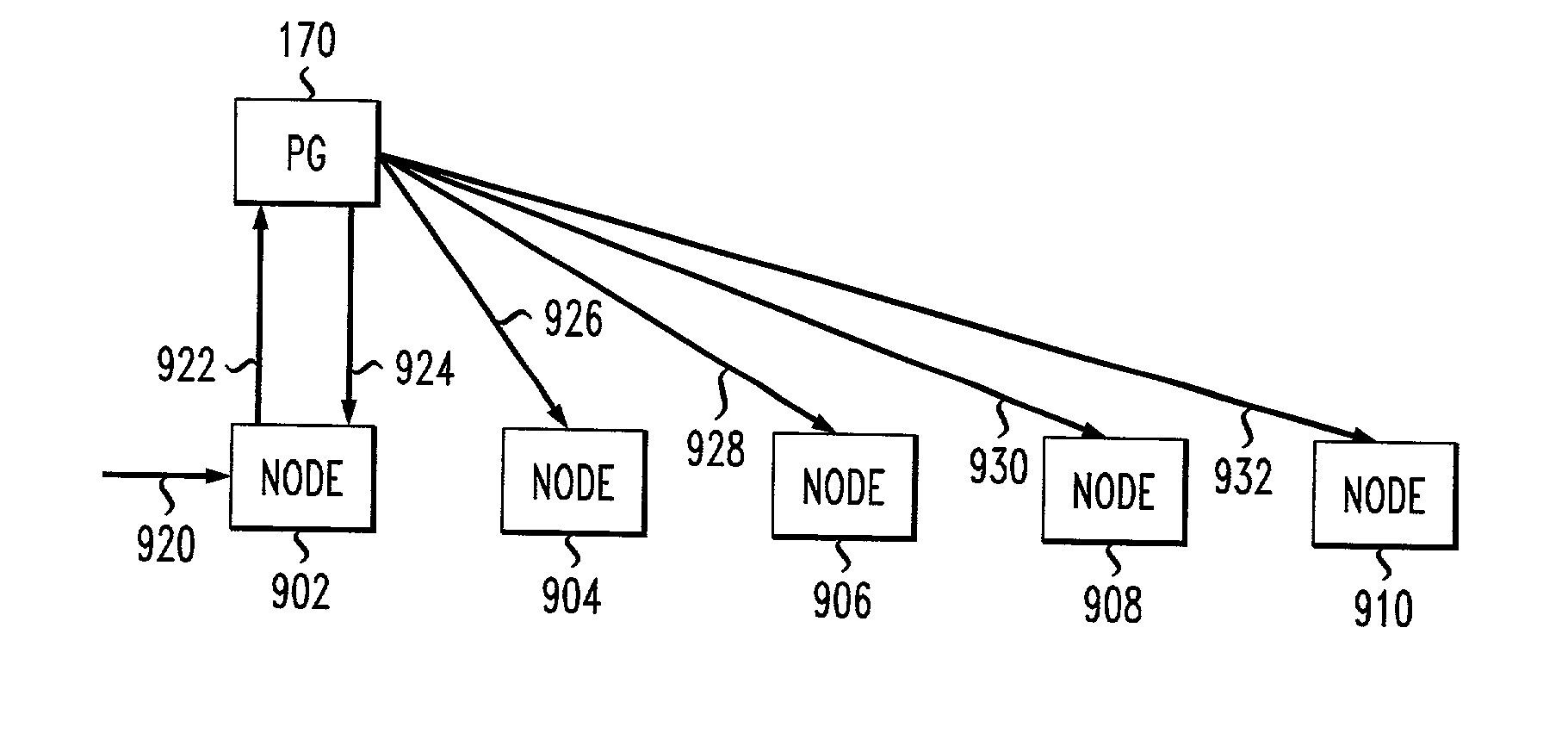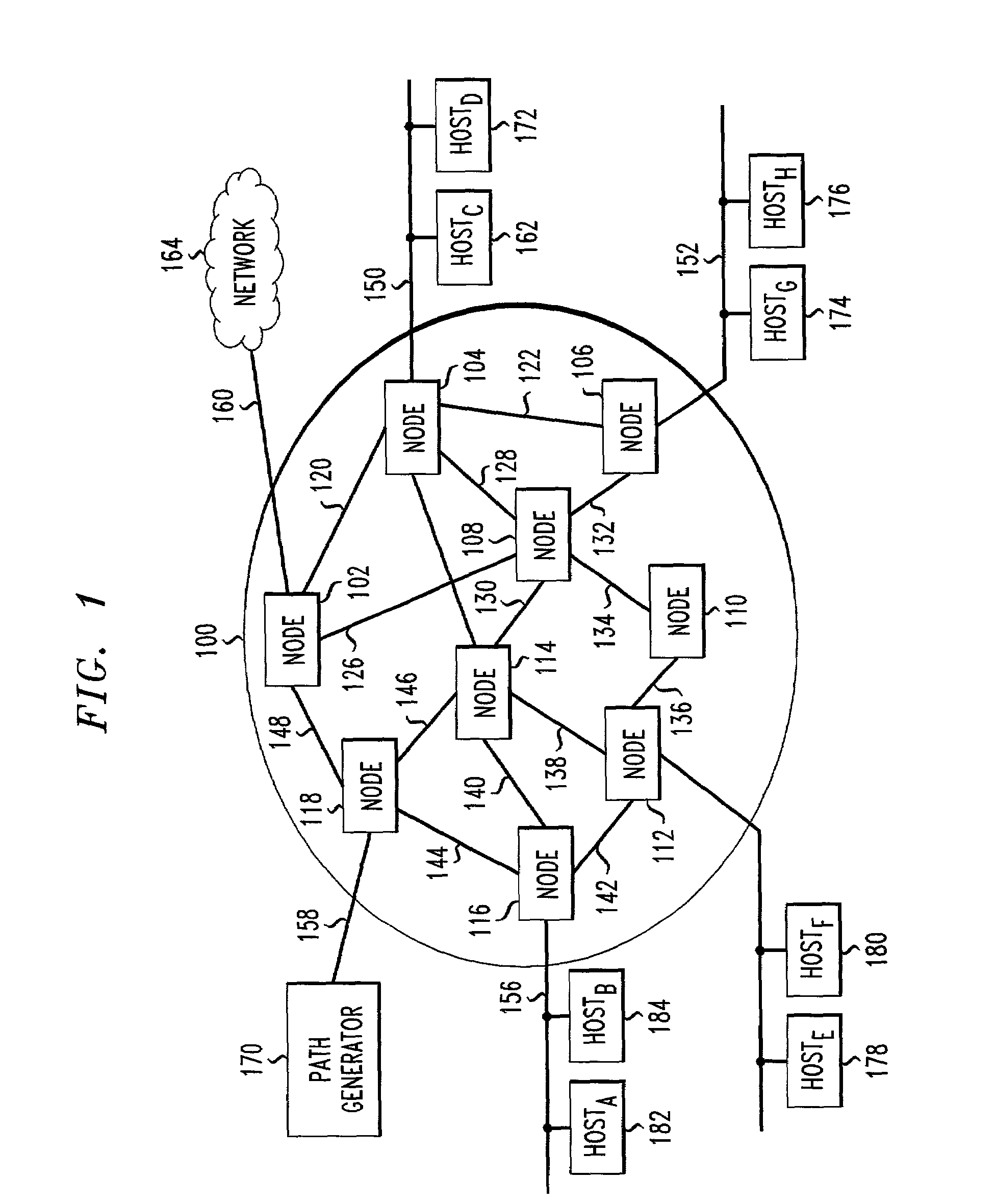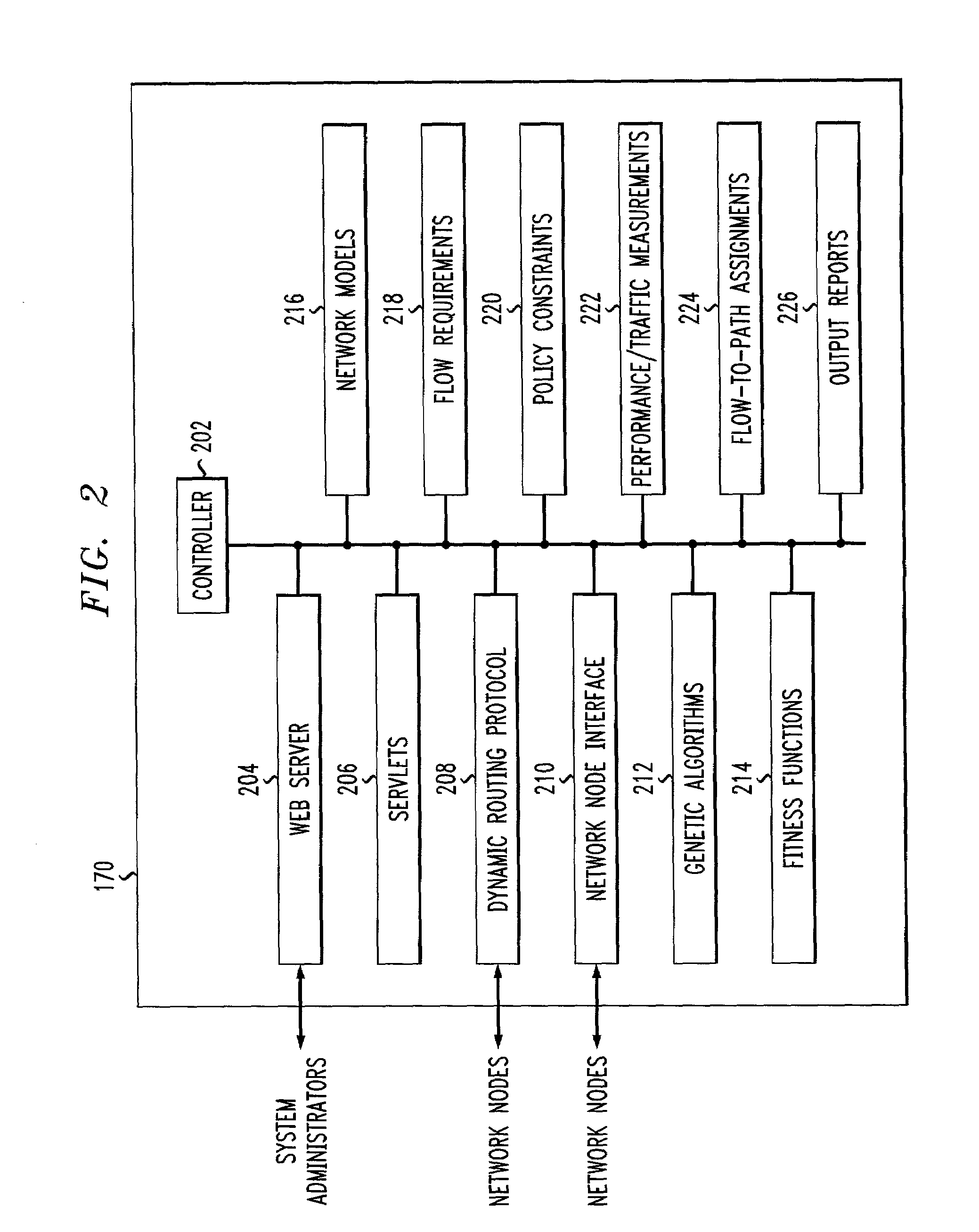System for utilizing a genetic algorithm to provide constraint-based routing of packets in a communication network
a technology of communication network and genetic algorithm, applied in the field of system and method for constraint-based routing of packets in communication network, can solve the problems of complex algorithm for assigning traffic flows to paths in networks, inability to evaluate all possible routing options within a reasonable period,
- Summary
- Abstract
- Description
- Claims
- Application Information
AI Technical Summary
Problems solved by technology
Method used
Image
Examples
Embodiment Construction
[0027]Referring to the figures in which like numerals indicate like elements throughout, FIG. 1 illustrates a network architecture for which Constraint-Based Routing (CBR) using genetic algorithms can be used to route traffic through the network. A network 100 comprises a plurality of nodes 102–118 and a plurality of links 120–160. Some of the links (e.g., 120, 124) connect one node to another node (e.g., link 120 connects node 102 to node 104). Other links (e.g., 150, 152) connect a node to one or more host computers (e.g., link 150 connects node 104 to a plurality of host computers 162, 172). The network 100 can also be connected by a link (e.g., link 160) to another network (e.g., network 164). Network 100 can be an Internet Protocol (IP) network, a Multiprotocol Label Switching (MPLS) network or other type of packet network such as an Asynchronous Transfer Mode (ATM) network or frame relay network.
[0028]For purposes of discussion, it is assumed that network 100 is a MPLS network...
PUM
 Login to View More
Login to View More Abstract
Description
Claims
Application Information
 Login to View More
Login to View More - R&D
- Intellectual Property
- Life Sciences
- Materials
- Tech Scout
- Unparalleled Data Quality
- Higher Quality Content
- 60% Fewer Hallucinations
Browse by: Latest US Patents, China's latest patents, Technical Efficacy Thesaurus, Application Domain, Technology Topic, Popular Technical Reports.
© 2025 PatSnap. All rights reserved.Legal|Privacy policy|Modern Slavery Act Transparency Statement|Sitemap|About US| Contact US: help@patsnap.com



